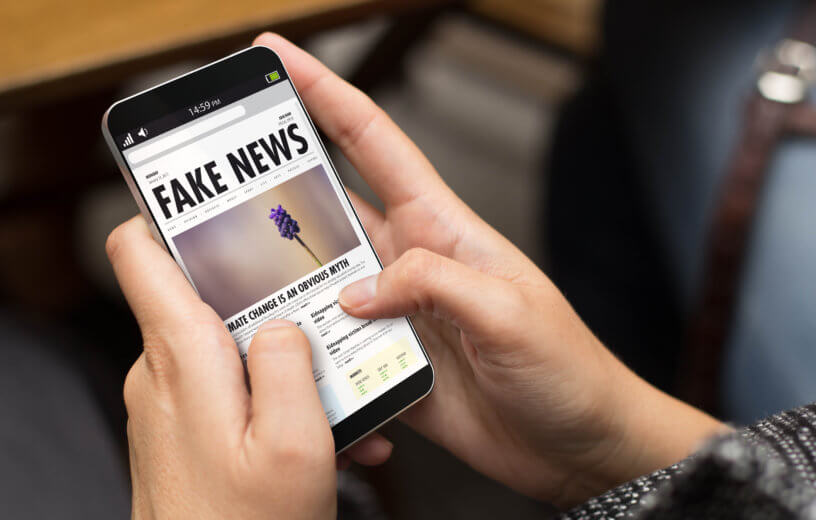WASHINGTON — Fake news is a constant problem in modern society, with misinformation spreading like wildfire through various social media platforms. While some may think it’s all a plot by powerful sources to influence the public narrative on certain issues, a new study finds a different reason for why fake news spreads. Researchers looking at thousands of Twitter users finds Americans often spread misinformation to fit in with their social circles. Simply put, the biggest driver of fake news may be peer pressure.
The international team says this phenomenon shows up among both conservative and liberal social circles in the United States. The findings show that, no matter what side of the political debate they’re on, people share unreliable information their friends tweet because they don’t want to be ostracized by others.
“Conformity and social pressure are key motivators of the spread of fake news,” says lead researcher Matthew Asher Lawson, PhD, an assistant professor of decision sciences at INSEAD, a business school in France, in a media release. “If someone in your online tribe is sharing fake news, then you feel pressure to share it as well, even if you don’t know whether it’s false or true.”
Study authors explain that fake news continues to increase the divisions and distrust sweeping through American politics. However, its spread doesn’t always have some “dark motive” attached to it. The team found that in many cases people on social media share fake news stories without any apparent malicious intent or ideological purpose.
“Political ideology alone doesn’t explain people’s tendency to share fake news within their social groups,” Lawson says. “There are many factors at play, including the very basic desire to fit in and not to be excluded.”

Don’t like my tweets? Don’t talk to me
To study this, researchers examined the tweets and political ideology of more than 50,000 pairs of U.S. Twitter users. This included looking at their tweets sharing fake or politically-biased information between August and December 2020. The team used a computer algorithm to figure out each person’s political leanings, based on the types of Twitter accounts they follow. Researchers also measured the number of tweets between these pairs of Twitter users from the same social circles.
Results show these Twitter users were less likely to socialize with each other over time if one of them did not share the fake new stories the other friend was tweeting about. This pattern remained constant regardless of the pair’s political leanings — conservative or liberal.
In a second experiment, the team analyzed 10,000 Twitters users who shared fake news in the first experiment, as well as a group representing the general population of Twitter users. Americans who shared misinformation were more likely to cut off others who did not share their tweets full of fake or biased news. To the researchers, this suggests that peer pressure has a particularly strong presence in the “fake news ecosystem.”
After conducting several additional tests, the team concludes that people who are more concerned about the social costs of not fitting in are more likely to share their friend’s fake news tweets.
Previous studies show that fake news only accounts for 0.15 percent of Americans’ daily media consumption. Moreover, only one percent of the public is responsible for spreading 80 percent of the misinformation online today.
The research is published in the Journal of Experimental Psychology: General.


Fake news (especially the outrage mongering type) is more viral than real news. What annoys me is people continue to trust the sources after they have disgraced themselves again and again. Like remember when people were freaking out about “Biden limiting the amount of beef each citizen can eat in a year”? What an obviously fake thing to get upset about! There are plenty of things hes done to warrant outrage – why not focus on those? (Like cramming NATO up Russia’s backside smells like the Gulf of Tonkin to me.